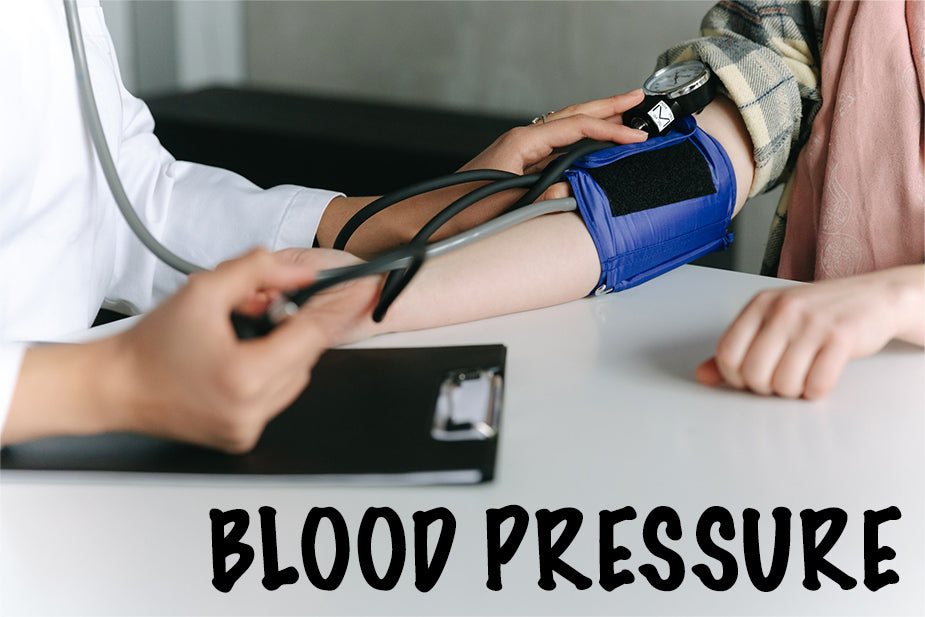
Blood Pressure! Why is blood pressure important and what are the ideal levels?
Share
Blood pressure is the force exerted by blood against the walls of arteries as it flows through them. It is a crucial measure of cardiovascular health and is often used as a diagnostic tool to assess risk factors for heart disease and other cardiovascular disorders. In this blog post, we will discuss why blood pressure is important, what the ideal levels are, and how to maintain healthy blood pressure.
Why is blood pressure important?
High blood pressure, also known as hypertension, is a leading risk factor for heart disease, stroke, and other cardiovascular disorders. When blood pressure is consistently high, it can damage the arteries, making them less elastic and more prone to plaque buildup. This, in turn, can increase the risk of heart attack, stroke, and other complications.
On the other hand, low blood pressure, also known as hypotension, can cause dizziness, fainting, and other symptoms. In severe cases, it can lead to shock, which is a life-threatening condition that requires immediate medical attention.
What are the ideal blood pressure levels?
Blood pressure is measured using two numbers: systolic pressure (the top number) and diastolic pressure (the bottom number). The American Heart Association (AHA) defines the following:
- Normal blood pressure as less than 120/80 mm Hg.
- Prehypertension is defined as 120-139/80-89 mm Hg.
- Stage 1 hypertension is defined as 140-159/90-99 mm Hg.
- Stage 2 hypertension is defined as 160/100 mm Hg or higher.
It's important to note that blood pressure can fluctuate throughout the day, and it can also be affected by factors such as stress, exercise, and medications. That's why it's important to take multiple readings at different times and to consult with a healthcare provider to determine what the ideal blood pressure range is for you.
How can you maintain healthy blood pressure?
There are several lifestyle changes you can make to maintain healthy blood pressure. These include:
- Eating a healthy diet: A diet that's high in fruits, vegetables, whole grains, and lean proteins can help lower blood pressure. Avoiding processed foods, excessive salt, and saturated and trans fats is also recommended.
- Maintaining a healthy weight: Being overweight or obese can increase blood pressure. Losing even a small amount of weight can help lower blood pressure.
- Exercising regularly: Physical activity can help lower blood pressure and reduce the risk of heart disease. The AHA recommends at least 150 minutes of moderate-intensity aerobic activity or 75 minutes of vigorous-intensity aerobic activity per week.
- Reducing stress: Stress can cause temporary increases in blood pressure. Relaxation techniques such as meditation, deep breathing, and yoga can help reduce stress and lower blood pressure.
- Limiting alcohol consumption: Drinking too much alcohol can raise blood pressure. The AHA recommends no more than one drink per day for women and no more than two drinks per day for men.
- Quitting smoking: Smoking can damage the arteries and increase blood pressure. Quitting smoking can help lower blood pressure and reduce the risk of heart disease.
Summary:
Human blood pressure is a vital component of the circulatory system that helps ensure that enough oxygen and nutrients reach all of the body's organs and tissues. High blood pressure can damage the arteries and increase the risk of developing serious health problems, while low blood pressure can lead to inadequate blood flow to the body's organs and tissues. The American Heart Association (AHA) has established guidelines for blood pressure readings, with normal blood pressure being considered below 120/80 mmHg. Lifestyle changes such as regular exercise, maintaining a healthy weight, eating a healthy diet, limiting alcohol consumption, quitting smoking, and managing stress can help maintain healthy blood pressure levels.
Conclusion:
In conclusion, maintaining healthy blood pressure levels is essential for good cardiovascular health. Regular physical activity, maintaining a healthy weight, eating a healthy diet, limiting alcohol consumption, quitting smoking, and managing stress are all important steps you can take to keep your blood pressure in check. By making these lifestyle changes and regularly monitoring your blood pressure, you can reduce your risk of developing serious health problems and enjoy a healthier, more active life.
Blood pressure is a critical measure of cardiovascular health. Maintaining healthy blood pressure levels can reduce the risk of heart disease, stroke, and other complications. By making lifestyle changes such as eating a healthy diet, exercising regularly, reducing stress, limiting alcohol consumption, and quitting smoking, you can help lower blood pressure and improve your overall health.
